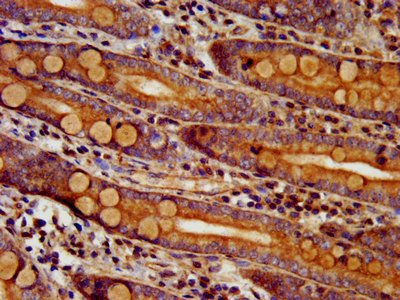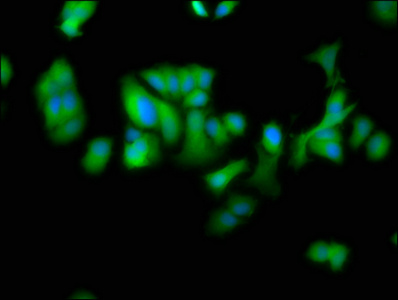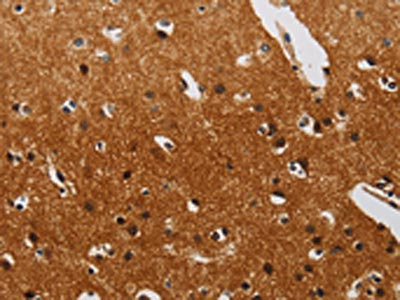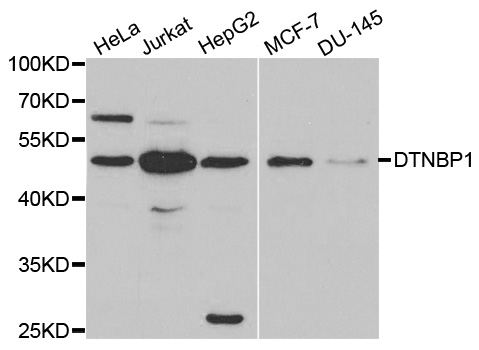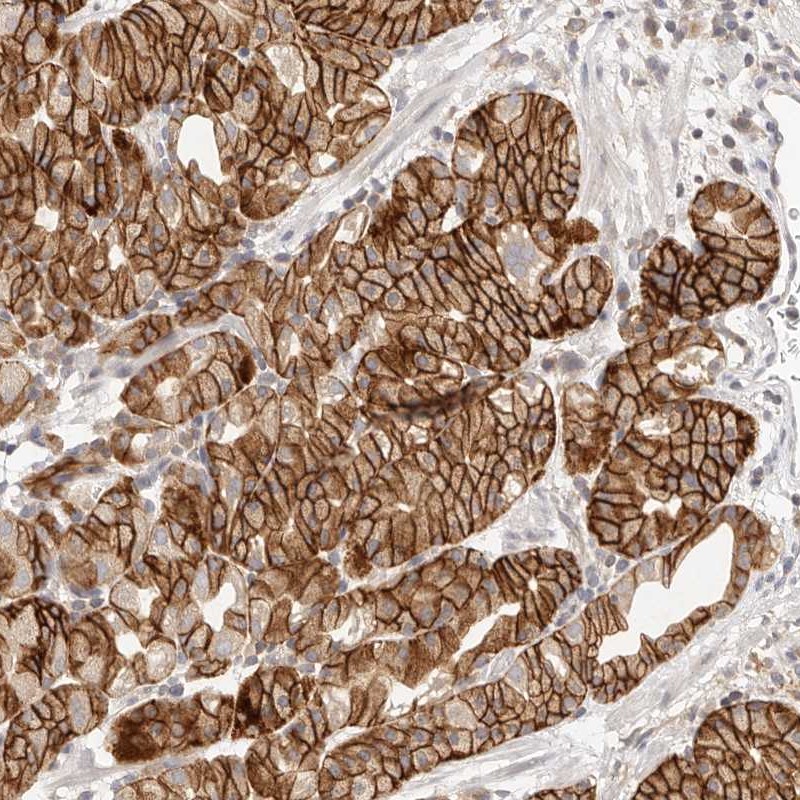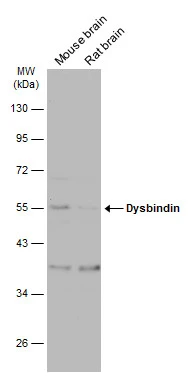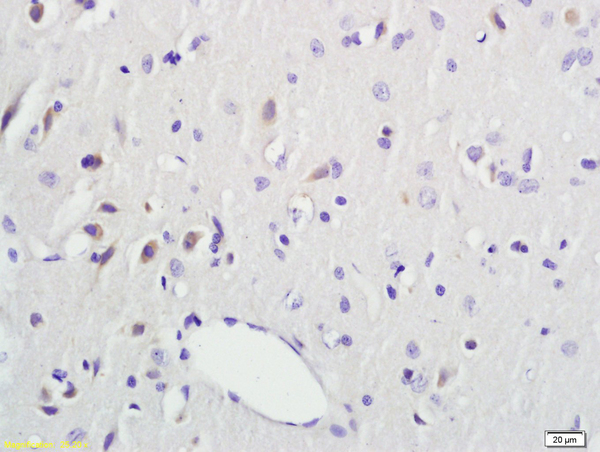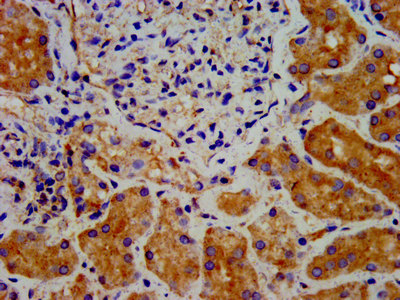
IHC image of CSB-PA822207LA01HU diluted at 1:300 and staining in paraffin-embedded human kidney tissue performed on a Leica BondTM system. After dewaxing and hydration, antigen retrieval was mediated by high pressure in a citrate buffer (pH 6.0). Section was blocked with 10% normal goat serum 30min at RT. Then primary antibody (1% BSA) was incubated at 4°C overnight. The primary is detected by a biotinylated secondary antibody and visualized using an HRP conjugated SP system.
DTNBP1 Antibody
CSB-PA822207LA01HU
ApplicationsImmunoFluorescence, ELISA, ImmunoHistoChemistry
Product group Antibodies
ReactivityHuman
TargetDTNBP1
Overview
- SupplierCusabio
- Product NameDTNBP1 Antibody
- Delivery Days Customer20
- ApplicationsImmunoFluorescence, ELISA, ImmunoHistoChemistry
- CertificationResearch Use Only
- ClonalityPolyclonal
- ConjugateUnconjugated
- Gene ID84062
- Target nameDTNBP1
- Target descriptiondystrobrevin binding protein 1
- Target synonymsBLOC1S8, DBND, HPS7, My031, SDY, dysbindin, BLOC-1 subunit 8, Hermansky-Pudlak syndrome 7 protein, biogenesis of lysosomal organelles complex-1, subunit 8, biogenesis of lysosome-related organelles complex 1 subunit 8, dysbindin-1
- HostRabbit
- IsotypeIgG
- Protein IDQ96EV8
- Protein NameDysbindin
- Scientific DescriptionComponent of the BLOC-1 complex, a complex that is required for normal biogenesis of lysosome-related organelles (LRO), such as platelet dense granules and melanosomes. In concert with the AP-3 complex, the BLOC-1 complex is required to target membrane protein cargos into vesicles assembled at cell bodies for delivery into neurites and nerve terminals. The BLOC-1 complex, in association with SNARE proteins, is also proposed to be involved in neurite extension. Associates with the BLOC-2 complex to facilitate the transport of TYRP1 independent of AP-3 function. Plays a role in synaptic vesicle trafficking and in neurotransmitter release. Plays a role in the regulation of cell surface exposure of DRD2. May play a role in actin cytoskeleton reorganization and neurite outgrowth. May modulate MAPK8 phosphorylation. Appears to promote neuronal transmission and viability through regulating the expression of SNAP25 and SYN1, modulating PI3-kinase-Akt signaling and influencing glutamatergic release. Regulates the expression of SYN1 through binding to its promoter. Modulates prefrontal cortical activity via the dopamine/D2 pathway.
- ReactivityHuman
- Storage Instruction-20°C or -80°C
- UNSPSC41116161

